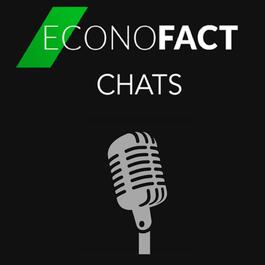
Middle-income jobs have been declining over the past decades, leaving behind a polarized workforce, with one group of people doing high-skilled, well remunerated work, and another growing set, that are in low-wage, relatively economically insecure positions, that don't have much of a career ladder. Automation, globalization, and the shrinking role of unions have all contributed to the hollowing out of middle-wage jobs, exacerbating wage inequality among American workers. In the current economic recovery, however, there are hopeful signs that labor demand, and worker activism might improve conditions for low wage workers. This week on EconoFact Chats, David Autor discusses the economic forces behind the hollowing out of the middle class, and what types of policies can help expand opportunities for those left behind. David is Ford Professor in the MIT Department of Economics and co-director of the NBER Labor Studies Program. Note: This podcast was first published on 19th December, 2021.
From "EconoFact Chats"




Comments
Add comment Feedback